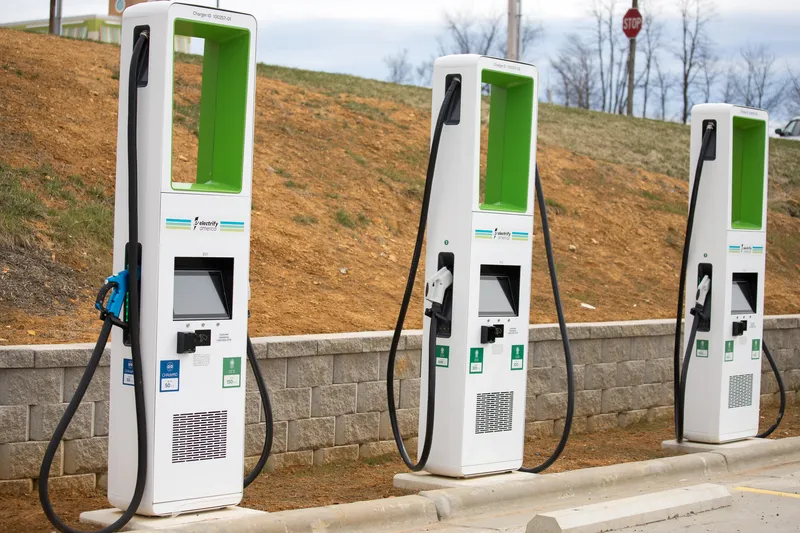The Washington State Department of Transportation (WSDOT) has selected AeroVironment to manufacture, supply, install and operate a network of nine fast-charging stations for electric vehicles on Interstate 5 and US 2. Stations will be located every 40 to 60 miles along stretches of I-5 between the Canadian border and Everett and between Olympia and the Oregon border, as well as along US 2 between Everett and Leavenworth.
April 19, 2012
Read time: 2 mins
RSSThe 451 Washington State Department of Transportation (WSDOT) has selected 2132 AeroVironment to manufacture, supply, install and operate a network of nine fast-charging stations for electric vehicles on Interstate 5 and US 2. Stations will be located every 40 to 60 miles along stretches of I-5 between the Canadian border and Everett and between Olympia and the Oregon border, as well as along US 2 between Everett and Leavenworth.
“A network of charging stations linking Washington to Oregon and Canada will make electric vehicles more attractive to consumers and businesses, and transportation better for the environment,” said Paula Hammond, Washington secretary of transportation.
The fast-charging stations will be operational by the end of November and will power an electric vehicle from zero to fully charged in less than 30 minutes. Each station also will include a Level 2 “medium-speed” charging station, which will cost less for users and take up to four to six hours for a full charge. The stations will be located at private retail locations such as shopping malls, fuelling stations and travel centres with easy access to the highway.
In the area between Everett and Olympia, additional charging stations will be installed through a federal programme, The EV Project, administrated by the US Department of Energy. Combined, the two projects will connect Washington drivers along the entire 450kms of I-5 between Canada and Oregon.
While AeroVironment helps power the electric-vehicle charging network in Washington, the company will simultaneously electrify I-5 in Oregon through a similar project managed by the Oregon Department of Transportation. Both states’ projects will complement The EV Project, which will install thousands of home and public electric-vehicle charging stations in six states, including Washington, Oregon and California.
Washington’s electric-highway infrastructure is a key component of a future West Coast Green Highway. When complete, it will extend a seamless network of recharging stations along all 2,200 kms of I-5 from Canada to Mexico, serving more than two million electric vehicles that market analysts say will be sold in Washington, Oregon and California in the next decade.
“A network of charging stations linking Washington to Oregon and Canada will make electric vehicles more attractive to consumers and businesses, and transportation better for the environment,” said Paula Hammond, Washington secretary of transportation.
The fast-charging stations will be operational by the end of November and will power an electric vehicle from zero to fully charged in less than 30 minutes. Each station also will include a Level 2 “medium-speed” charging station, which will cost less for users and take up to four to six hours for a full charge. The stations will be located at private retail locations such as shopping malls, fuelling stations and travel centres with easy access to the highway.
In the area between Everett and Olympia, additional charging stations will be installed through a federal programme, The EV Project, administrated by the US Department of Energy. Combined, the two projects will connect Washington drivers along the entire 450kms of I-5 between Canada and Oregon.
While AeroVironment helps power the electric-vehicle charging network in Washington, the company will simultaneously electrify I-5 in Oregon through a similar project managed by the Oregon Department of Transportation. Both states’ projects will complement The EV Project, which will install thousands of home and public electric-vehicle charging stations in six states, including Washington, Oregon and California.
Washington’s electric-highway infrastructure is a key component of a future West Coast Green Highway. When complete, it will extend a seamless network of recharging stations along all 2,200 kms of I-5 from Canada to Mexico, serving more than two million electric vehicles that market analysts say will be sold in Washington, Oregon and California in the next decade.








